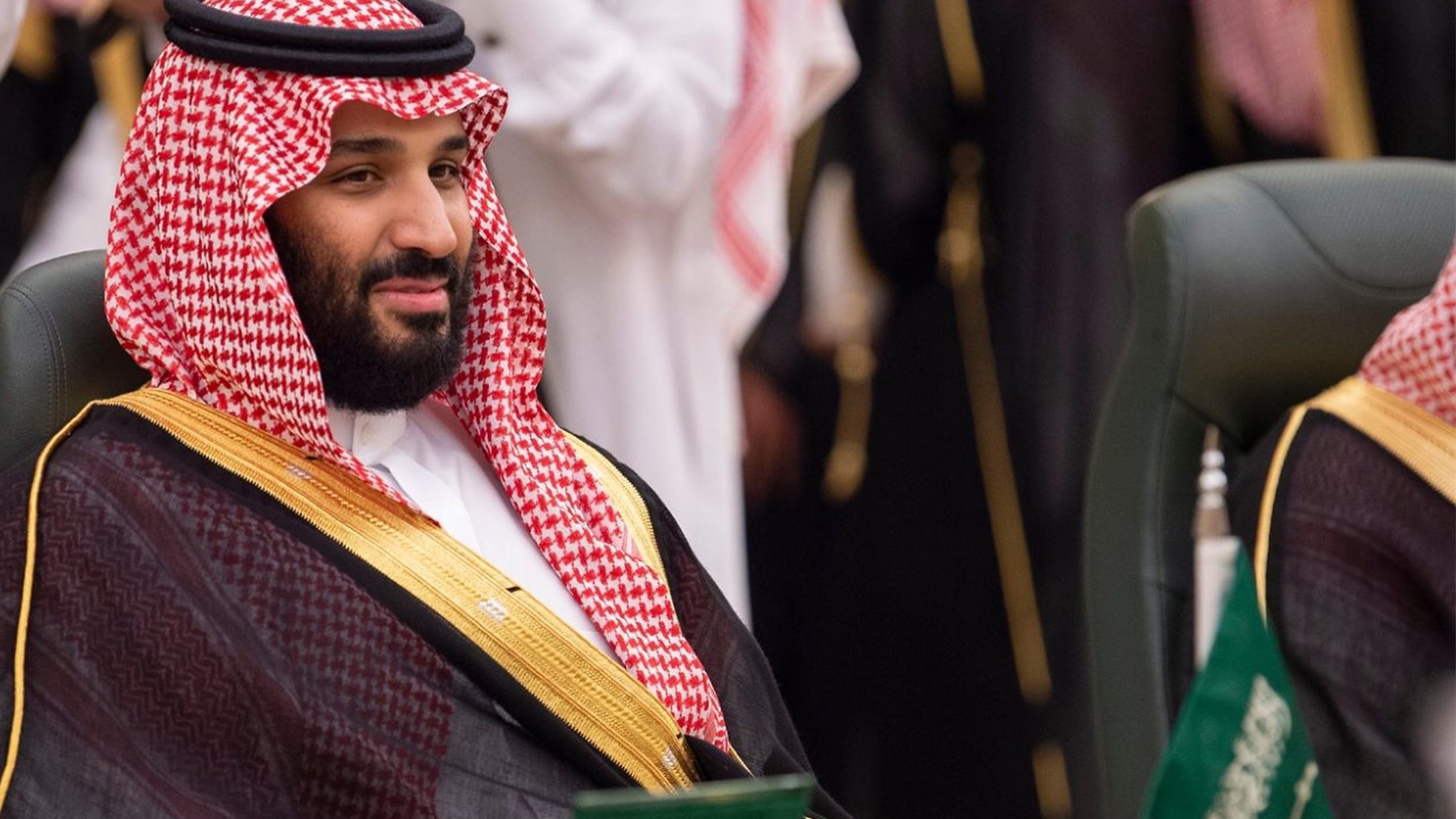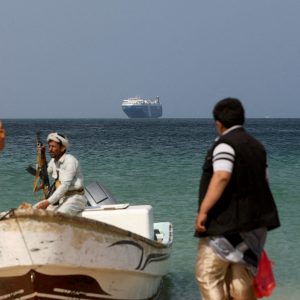In an era where world leaders wield Twitter as their political weapon of choice, Saudi Arabia has initiated a sanctions war with Canada–culminating in the complete severing of relations between the two countries–on the basis of a single tweet. On the surface, this appears to be a bizarre overreaction by the Saudi government. Yet, in order to understand Saudi Arabia’s reaction, it is necessary to consider recent changes in Saudi society, and specifically, the rise of Saudi Arabia’s new de-facto leader, Crown Prince Muhammad bin Salman, who is at the core of an ambitious effort to profoundly transform Saudi society. Given the lack of economic dependence between the two countries, it is unlikely that Saudi Arabia expected the sanctions to compel Canada to remedy their actions. Thus it appears that the sanctions were a calculated and symbolic political maneuver in which Canada was just an unfortunate pawn. The question remains, if this was simply a political move, what were Saudi Arabia’s political intentions, and what can this tell us about Saudi Arabia’s aspirations under Crown Prince Muhammad bin Salman?
Setting the Scene
On August 1, 2018, following a Saudi crackdown on civil society, Amnesty International announced that the Saudi government had arrested a group of female Saudi activists, including renowned human rights activist, Samar Badawi. In 2010, Badawi garnered international attention when she refused to attend her court dates after her father sued her for “disobedience” under Saudi Arabia’s male guardianship laws, leading to her arrest. When she was later released, she became an outspoken human rights critic of the Saudi regime and notably led the movement fighting for Saudi women’s right to drive. Canada, which has ties to the Badawi family and is a particularly strong proponent of human rights, quickly expressed solidarity with the arrested by tweeting, “Very alarmed to learn that Samar Badawi has been imprisoned in Saudi Arabia. Canada stands together with the Badawi family in this difficult time.” The Canadian Ministry of Foreign Affairs (MFA) reiterated this message and called for further action, tweeting, “Canada is gravely concerned about additional arrests of civil society and women’s rights activists in Saudi Arabia, including Samar Badawi. We urge the Saudi authorities to immediately release them and all other peaceful human rights activists.”
The Saudi Arabian Foreign Ministry quickly responded, “The negative and surprising attitude of Canada is an entirely false claim and utterly incorrect,” calling Canada’s tweets “a blatant interference in the international affairs of the Kingdom, a violation of the “most basic international norms,” as well as an affront “to the Kingdom’s sovereignty.” Saudi Arabia’s staunch and defensive response surprised Canadian authorities, but the swift actions that followed this exchange of tweets were even more startling.
#Statement | The Canadian position is an overt and blatant interference in the internal affairs of the Kingdom of #SaudiArabia and is in contravention of the most basic international norms and all the charters governing relations between States.
— Foreign Ministry 🇸🇦 (@KSAmofaEN) August 5, 2018
In a matter of weeks, Saudi Arabia forced the Canadian ambassador out of Saudi Arabia and initiated a wide range of severe sanctions on Canada, which included halting all new trade and investment transactions, suspending all Saudi flights to and from Toronto, ordering the withdrawal of all Saudi students from Canadian universities, and halting all Saudi medical treatment programs in Canada. An assault on Canada’s reputation soon followed, with Saudi state-owned radio stations and news outlets accusing Canada of gross human rights violations in their treatment of indigenous peoples, and calling Canada “the world’s worst oppressor of women.” Nevertheless, the Canadian government stood firm in the face of Saudi Arabia’s assaults, with the Canadian MFA stating, “We will continue to stand up for Canadian values and indeed for universal values and human rights at any occasion.”
This strange turn of events left many in the international community bewildered. Canada’s support and defense of human rights is hardly a surprise. The country has been one of the strongest and most consistent proponents of human rights in the international community, and Canadian Prime Minister, Justin Trudeau, has publicly committed himself to promoting a women’s rights agenda during his term in office. Trade between the two countries is small, totaling only 3.08 billion US dollars in 2017, and according to the World Bank, Saudi Arabia only accounts for .24% of Canadian exports. Thus, it is unlikely that Canada’s economy will be greatly affected by the Saudi sanctions. Given the lack of economic integration between the two countries, the intentions behind Saudi Arabia’s sanctions are puzzling, and a political motive seems all the more likely.
The Man Behind the Curtain
In order to truly understand this strange series of events, it is essential to understand the ambitious and enigmatic young man behind the sanctions efforts: Crown Prince Mohammed bin Salman. Although King Salman bin Abdulaziz Al Saud is the official head of the Saudi Arabian state, at the age of 82 years old, his power has largely been surpassed by that of his 33-year-old, politically-savvy and charming, but unpredictable, son–Crown Prince Mohammed bin Salman. As second in line to the throne behind the aging king, Mohammed bin Salman is believed to be the real driving force behind Saudi policies.
Since becoming Crown Prince in 2017, Mohammed bin Salman has been lauded domestically and internationally as a progressive leader, fighting tirelessly to bring Saudi Arabia into the 21st century. In the West in particular, Mohammed bin Salman has been celebrated for overseeing an opening and liberalization of Saudi society. This high praise is not without merit: his major reforms–such as moderating Islam, weakening the much-feared religious police, allowing women to drive and join the military, and removing the 35-year-long ban on cinemas, theaters and concert halls in Saudi Arabia–have profoundly changed Saudi society.
The basis for these reforms stems from Mohammed bin Salman’s Saudi Vision 2030, an ambitious and expansive plan, introduced in April 2016, that outlines Mohammed bin Salman’s goals for Saudi Arabia to achieve by 2030. Vision 2030 has three major goals: making Saudi Arabia “the heart of the Arab and Islamic worlds,” becoming a “foreign investment powerhouse,” and “transforming the country’s location into a hub connecting Asia, Europe, and Africa.” More specifically, Saudi Arabia strives to become one of the top 15 largest world economies, triple non-oil revenue, eliminate barriers to foreign investment, diversify its economy, decrease unemployment, encourage innovation and modernize the country socially and economically, with the ultimate goal of becoming a significant world power.
Yet, it is important to remember that despite all of his reforms, Mohammed bin Salman is not as progressive as he seems. As the recent arrests of these women’s rights activists show, while he has liberalized certain aspects of society, he has also overseen an expansive repression of civil society, cracked down on critics, and denied fair trials to arrested activists.
Why Sanctions?
Given Canada’s stance towards human rights and Mohammed bin Salman’s somewhat progressive reputation, the question remains, why did Mohammed bin Salman react so strongly to Canada’s tweet? The explanation is three-fold, but all three explanations serve to reinforce Mohammed bin Salman’s ultimate goal of consolidating Saudi Arabia’s reputation as a global power.
Unite the People
The first possible explanation for the Saudi sanctions is that they may have been intended to stoke nationalist sentiment in Saudi Arabia by uniting the country against a common external enemy. Mohammed bin Salman’s goal was likely intended to distract Saudi citizens from the country’s domestic issues. Since taking power in 2017, Crown Prince Mohammed bin Salman has attempted to portray himself as a forward-thinking leader who aims to reconcile Saudi Arabia’s traditional values with those of social, economic, and political progress. However, domestic problems within the country, such as falling oil prices and ballistic attacks on Saudi cities by the Houthi movement, have led to domestic uncertainty and instability that undermine Mohammed bin Salman’s ambitious leadership and reform efforts. Similar to the disputes with Lebanon and Qatar last year, the Saudi sanctions on Canada may be another attempt to encourage nationalist sentiment and garner domestic support from the Saudi people. The emergence of the Saudi hashtag, “#Saudifirst,” following the announcement of the Canadian sanctions, further suggests that there are nationalist intentions behind this sanctions effort.
In order to achieve his ambitious reforms to make Saudi Arabia a modern superpower, it is essential that Mohammed bin Salman has the support of the Saudi people. Since nearly 60% of the Saudi population is under 30 years old, he has initiated reforms meant to appeal to young Saudis. As Mohammed bin Salman himself stated in a 2018 interview with the Washington Post, “Without the support of the people, there is no way we would achieve anything”; however, his modern reforms have led to some tension with the traditional leadership, who worry that this liberalization will undermine the power and legitimacy the royal family has so carefully maintained through tight controls over Saudi society.
A Not-So-Subtle Threat
A second explanation for the sanctions is that they may have been for Saudi Arabia to send a not-so-subtle message to its critics. It is possible that Canada was simply a victim of Mohammed bin Salman’s increasingly aggressive foreign policy stance. Although Mohammed bin Salman has allowed some social progress, such as allowing women to drive, he has also firmly suppressed criticism, both domestically and internationally. It is likely that Mohammed bin Salman is using Canada as a low-risk opportunity to spread the broader message that Saudi Arabia will not tolerate criticism of its domestic affairs by the international community, without enduring the deeper economic burden that sanctioning a more significant economic partner would entail. As Thomas Juneau, a professor of Middle East Studies at the University of Ottawa stated, “Canada is collateral damage. This fundamentally is not about Canada. This is about Saudi Arabia wanting to send a broader message to its neighbors, to other democracies.” Based on the deafening silence of Canada’s major Western allies, who have neither critiqued Saudi Arabia nor voiced support for Canada in this dispute, it appears Mohammed bin Salman’s message has been heard loud and clear.
An Emerging Superpower
A final explanation for the Saudi Arabian sanctions may have been to show the international community that it simply has the capability to do so. Tufts professor Daniel Drezner argues that the ability to impose sanctions is increasingly viewed as a “prestige good,” defined as a good that provides a state with prestige, even if it does not offer a “tangible return.” Similar to states’ efforts to develop space programs or build aircraft carriers, Saudi Arabia’s imposition of sanctions can be viewed as a prestigious endeavor since only a few powerful states, including the United States, China, Russia, and members of the EU can actually afford to sanction other states. Thus, it is possible that Saudi Arabia sanctioned Canada to align itself with other great powers and show the international community that it is a force to be reckoned with.
A Recurring Trend
While Saudi Arabia’s actions may seem sudden and unexpected, the dispute with Canada is really just a more dramatic realization of the increasingly aggressive stance of the Saudi government. For example, in 2015, Saudi Arabia recalled the Swedish ambassador following the ambassador’s criticism of Saudi Arabia’s human rights record. In 2017, Saudi Arabia escalated its response to criticism by not only recalling the German ambassador but also blacklisting German businesses following Germany’s criticism of Saudi Arabia’s military intervention in Yemen. Still, the case of Canada is unique because Saudi Arabia has never been quite so bold in its response to criticism. The Saudi government’s enhanced sense of audacity can likely be attributed to the increasingly confrontational leadership-style of Mohammed bin Salman. Under the directive of Mohammed bin Salman, the Saudi government has used sanctions as a political weapon to rile up nationalist sentiment, warn Western critics and establish itself as a rising world power. As the disputes with Sweden, Germany–and now Canada–reveal, these aggressive shows of Saudi strength have happened before, and as long as Mohammed bin Salman remains in power, they will likely happen again.
Whether the rationale for these sanctions was for Mohammed bin Salman to encourage nationalism within the country, to make an example of Canada to silence its Western critics, to show that Saudi Arabia simply has the power to impose sanctions or some combination of the above, the sanctions were a clear example of a cunning political maneuver by Mohammed bin Salman intended to advance his political vision, challenge the West and assert Saudi power. As for Canada, it appears that the country was simply an unwitting chess piece in the game of an ambitious and cunning young prince, dead set on proving himself to his kingdom, and his kingdom to the world.
Featured Image Source: Saudi – U.S. Trade Group






Be First to Comment